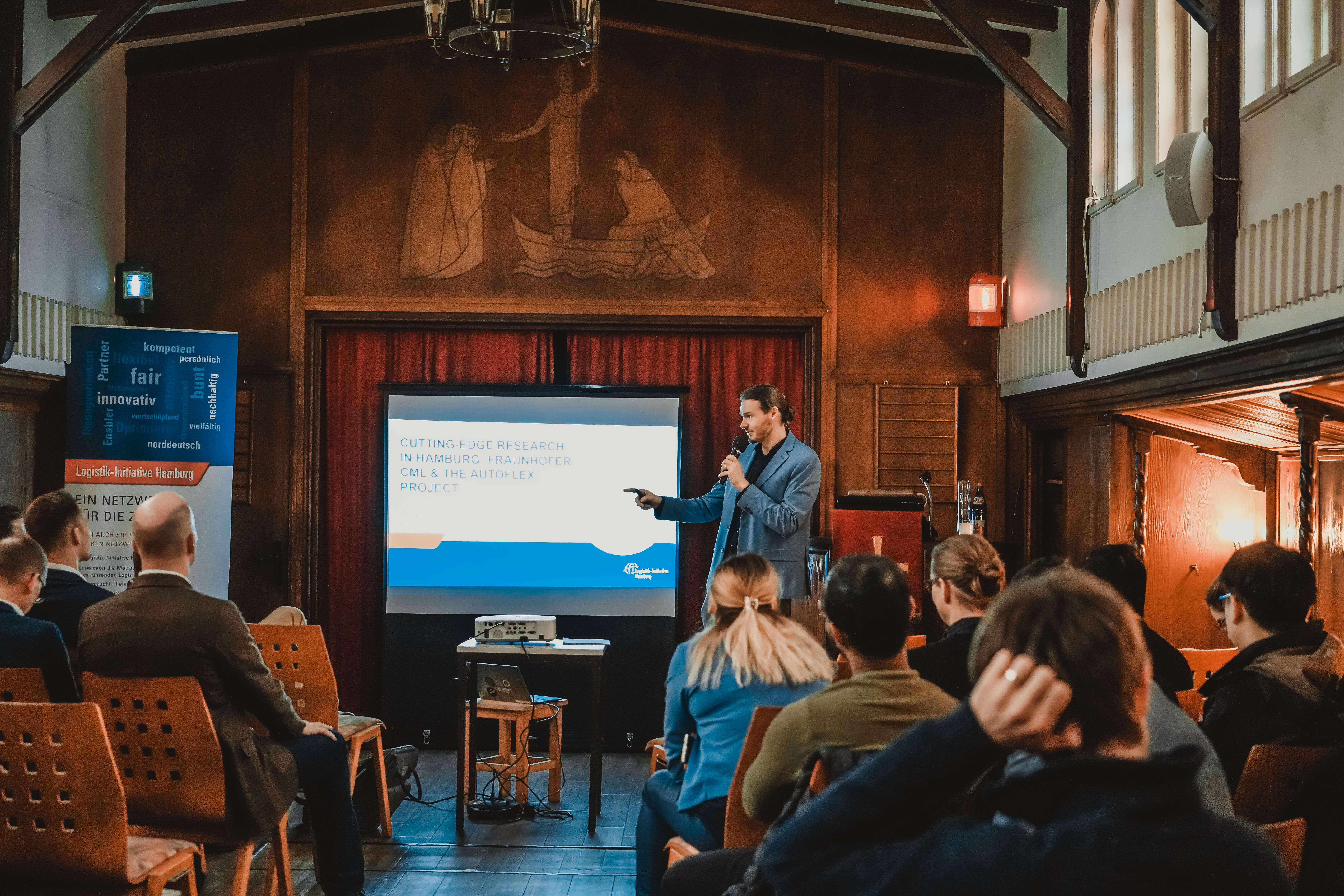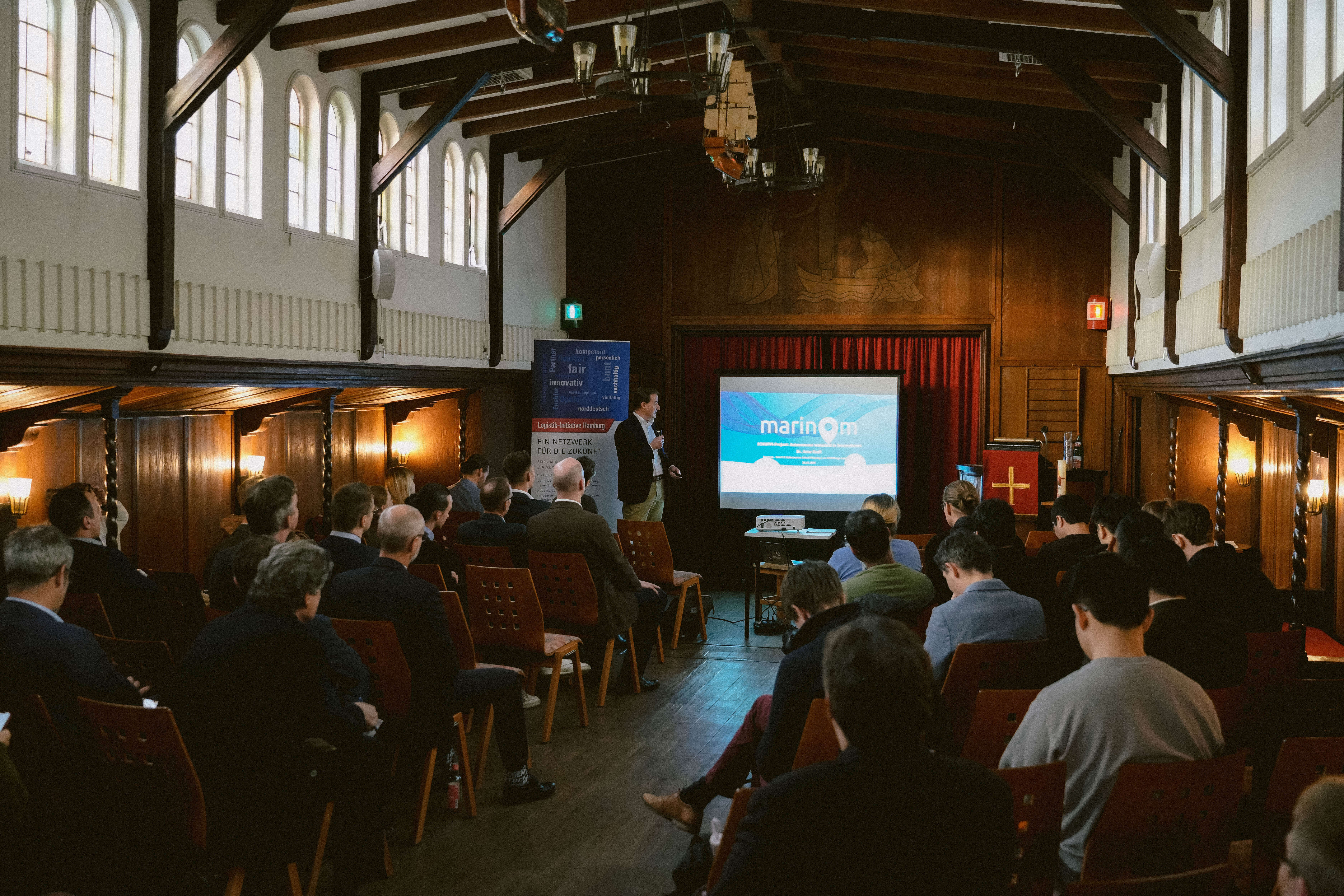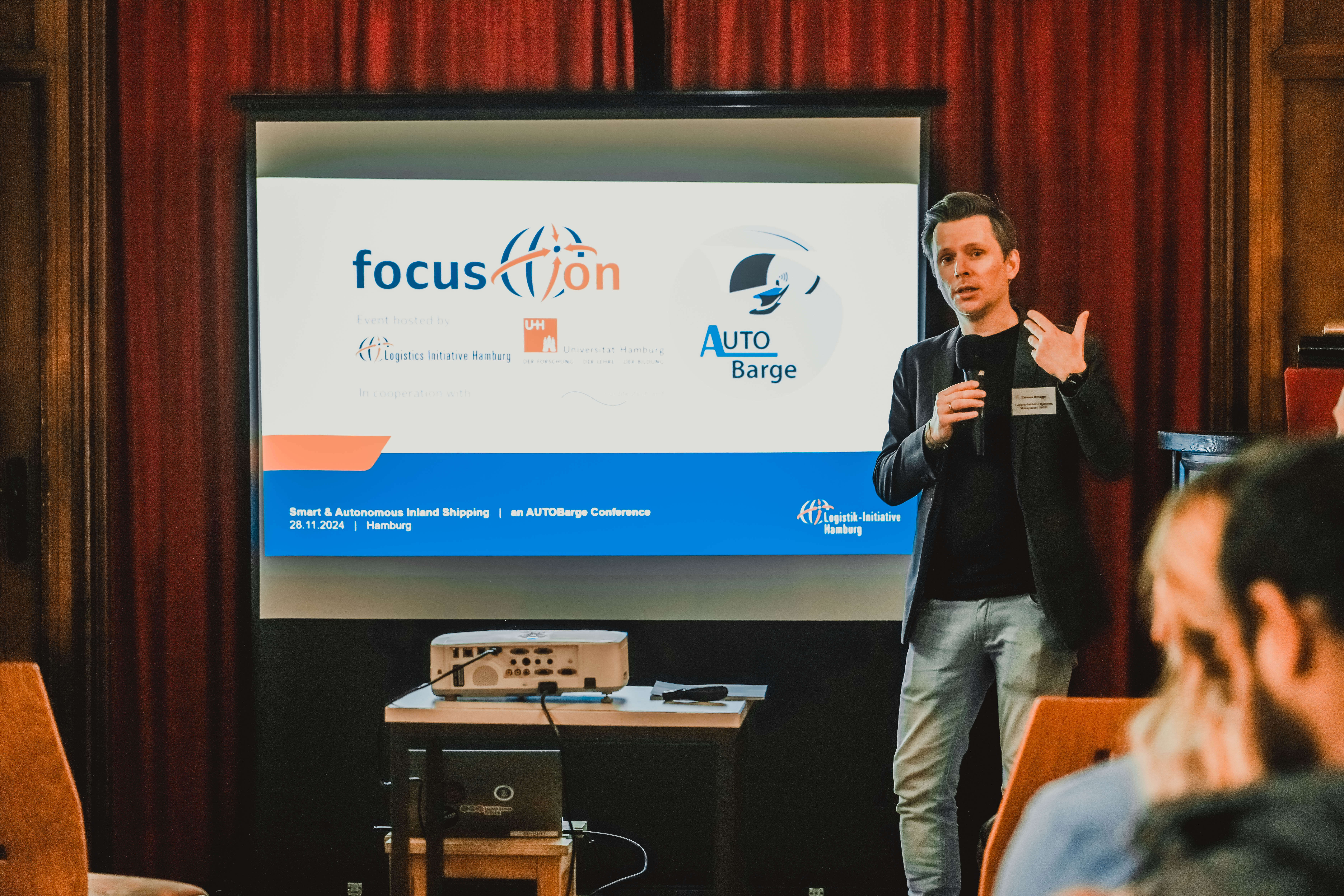On 28th of November 2024, more than 40 stakeholders and researchers from Northern Germany and Europe met in Hamburg to discuss innovations and the path to autonomous inland shipping.
The occasion was a multi-day project meeting of the European AUTOBarge project. As part of this meeting, project stakeholders and interested experts from Northern Germany came together in a fitting atmosphere on the former Weser barge and current floating church barge of the Flussschifferkirche Hamburg to discuss the status of research and present ongoing projects.
Hosted by Logistics Initiative Hamburg, this meeting brought the opportunity to present the collaboration-centred approach of the InnoWaTr project to participants in an insightful presentation of Sabrina Wilms and Dr. Lars Stemmler from project partner bremenports. The presentation summarized how innovation and collaboration approaches such as the project's so-called freight flow coalitions create a potential path towards innovation transfer and thus possibly enabling autonomous inland navigation. Lastly, bremenports revealed, how this will be incorporated in the project’s Center of Expertise.

With Logistics Initiative Hamburg & NWL Norddeutsche Wasserweg Logistik, two of InnoWatr’s FFC stakeholders had the chance to actively participate in this meeting.
The conference also offered a chance to connect to further European smart inland shipping projects, namely the AUTOFLEX project of the Fraunhofer CML, the ‘SCHUPPI’ project of the Bremen-based company marinom and AUTOBarge project.


Source all pictures: L. Zhang, Universität Hamburg
The event impressively demonstrated how much research work and innovation projects are already being carried out in this area in Europe and what advantages smart & autonomous systems could offer inland navigation in terms of competitiveness, flexibility and performance in the future. Particularly with regard to the increasing shortage of skilled labour. Despite all the technical hurdles and design requirements in the regulatory and legal framework, it is clear that autonomous inland waterway vessels will be introduced in the future and are already gradually being introduced today, e.g. via remote control centres and remote-controlled inland waterway transport.
You can also find a detailed event recap here (in German): https://www.hamburg-logistik.net/blog/urbane-logistik-transport-mobilitaet/die-smart-minds-der-binnenschifffahrt-versammelt-in-hamburg/
Authors: Thomas Brauner, Amir Ali Bashash, Logistics Initiative Hamburg
Contributors: Sabrina Wilms, Dr. Lars Stemmler, bremenports
